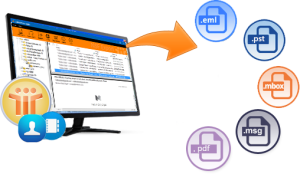
How to Handle Conflict with a Coworker Without the Stress
- Feb 07, 2025
- | 11
Introduction
Navigating workplace conflict can be challenging, but avoiding it only leads to mounting tension and stress. Research indicates that 85% of employees face conflict at work, with unresolved issues reducing productivity and morale. Developing strong conflict management skills is essential for creating a healthy work environment and maintaining professional relationships.
This guide will equip you with practical, actionable strategies to address and resolve conflicts with coworkers—without the stress.
Understanding Workplace Conflict
Why Do Conflicts Arise at Work?
Conflicts at work can stem from various sources, including:
- Role Ambiguity: Confusion over responsibilities
- Resource Allocation: Competing for limited resources or recognition
- Differing Work Styles: Clashing approaches to tasks and communication
- Personality Clashes: Natural differences in temperament and preferences
Case Study: The Project Management Clash
Consider a scenario where two project managers are tasked with overlapping duties, each believing their approach is superior. Miscommunication leads to duplicated efforts and mounting frustration.
Data Point: According to a CPP Global Human Capital report, over 50% of conflicts stem from personality clashes and stress, leading to reduced productivity.
Strategies to Resolve Workplace Conflict Without Stress
1. Address Issues Early
One of the biggest mistakes in conflict management is letting issues fester. Addressing conflicts early prevents escalation and allows for quicker resolution.
Action Steps:
- Set up a private meeting to discuss the issue
- Focus on behaviors and facts, not personalities
- Agree on a plan moving forward
Example: If a coworker consistently misses deadlines, initiate a conversation about workflow planning rather than personal responsibility.
2. Utilize Active Listening
Active listening helps both parties feel understood, reducing defensiveness and opening pathways for constructive dialogue.
Techniques:
- Maintain eye contact and acknowledge points by nodding
- Avoid interrupting while the other person is speaking
- Paraphrase what they’ve said to confirm understanding
Example: "What I hear you saying is that you feel overwhelmed by the current workload—is that correct?"
3. Find Common Ground
Look for mutual goals or shared interests that can bridge differences. Emphasizing common objectives helps shift the focus from conflict to collaboration.
Practical Tip:
- Identify a shared project or outcome both parties care about
- Align personal goals with team objectives
Example: "We both want this project to succeed—let's find a way to combine our efforts effectively."
4. Implement the 24-Hour Rule
Taking a brief pause before addressing a conflict can prevent emotional reactions and promote rational discussions.
How to Apply:
- Wait 24 hours before responding to a triggering email or comment
- Use this time to reflect and draft a calm, objective response
Example: Instead of immediately replying to a critical email, draft a response the next day with a clearer mind.
5. Engage in Conflict Resolution Training
Many organizations offer workshops on conflict management skills. Participating in these can enhance your ability to handle disputes professionally.
Data Insight:
- 30% improvement in workplace relationships has been observed in companies that invest in conflict resolution training.
Example: Suggesting a team workshop on communication skills can preempt future conflicts.
6. Seek Mediation if Needed
Sometimes, conflicts require a neutral third party to mediate. A mediator can facilitate discussions and help find a balanced solution.
Steps:
- Request HR involvement for formal mediation
- Agree on ground rules for respectful communication
- Aim for a win-win resolution
Example: Bringing in a mediator to help realign project goals after a prolonged dispute.
Managing Stress During Conflict
1. Practice Mindfulness Techniques
Mindfulness can reduce stress levels during conflict resolution. Techniques like deep breathing and short meditative breaks can help maintain calmness.
Practical Exercise:
- Take 5 deep breaths before a difficult conversation
- Spend 5 minutes practicing mindfulness meditation daily
Example: Using a deep breathing technique before entering a tense meeting.
2. Maintain Work-Life Balance
Balancing work and personal life reduces overall stress and increases your capacity to manage conflicts effectively.
Tips:
- Set clear boundaries around work hours
- Engage in hobbies and relaxation activities outside of work
Example: Disconnecting from work emails during weekends to recharge mentally.
3. Seek Professional Support
If conflicts at work are affecting your mental health, consulting with a professional can provide coping strategies and support.
Recommendation:
- Consider reaching out to the best therapist in Gurgaon for guidance on stress management and conflict resolution strategies.
Example: Scheduling regular sessions with a therapist to discuss workplace challenges and develop personalized coping strategies.
When to Escalate a Conflict
Not all conflicts can be resolved informally. If repeated attempts to resolve issues fail, consider escalating the matter to higher management or HR.
Signs It’s Time to Escalate:
- Persistent issues affecting team productivity
- Hostility or harassment concerns
- Impact on mental health and well-being
Example: Documenting instances of conflict and presenting them to HR for further action.
Conclusion
Handling conflicts with coworkers doesn’t have to be stressful. By addressing issues early, actively listening, finding common ground, and knowing when to seek mediation or professional support, you can navigate workplace disputes effectively. Developing conflict management skills not only enhances your professional relationships but also contributes to a more positive and productive work environment.
For ongoing support, consider consulting the best therapist in Gurgaon to strengthen your conflict resolution strategies and maintain mental well-being.

1.jpg)


